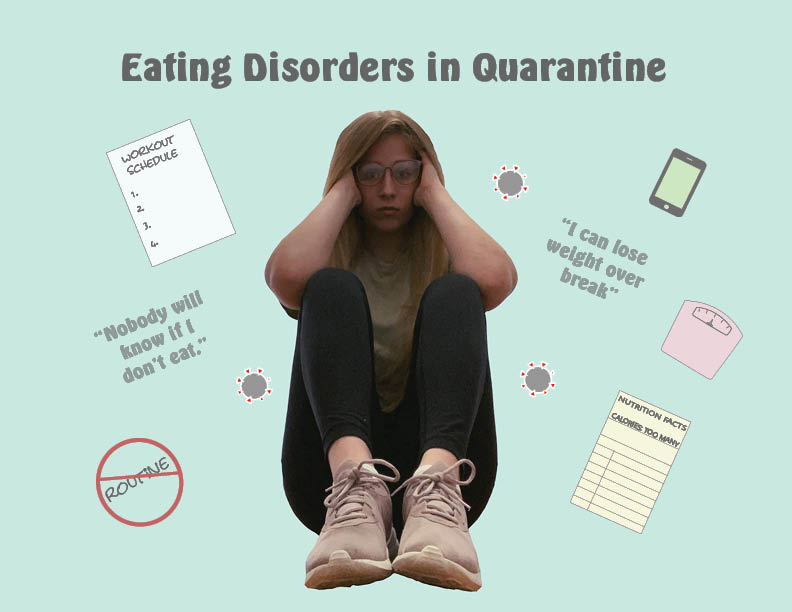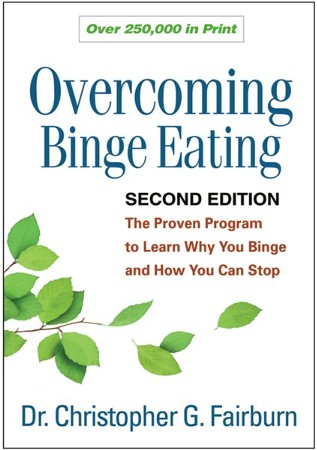What Does Eating Disorder Recovery Do?
Table of ContentsThe Greatest Guide To Eating Disorder RecoveryIndicators on Eating Disorder Recovery You Should KnowFascination About Eating Disorder Recovery
Some people with consuming disorders fight with past injury, absence of control over their lives, and also feelings of inadequacy, stress and anxiety, or clinical depression. Controlling what they eat is one method to put in control over their liveseven when the difficulties they're struggling with has little or absolutely nothing to do with food or consuming. eating disorder recovery.In truth, 9% of the U.S. populace will establish an eating problem in their life time. Yet they are most common in teenagers as well as young women: research shows that up to 13% of youngsters might experience at the very least one consuming problem by age 20. Living with an eating problem can be tough, specifically because food is such a central component of our lives.
It can additionally be hard to observe an eating problem, because individuals that binge, purge, or starve themselves commonly hide their actions. If you think somebody you understand is struggling with an eating problem, check for these indication: Starving themselves or limiting their food intake, like eating substantially listed below typical daily requirements of calories daily Acting extremely regulating around food and/or wishing to consume in personal Working out exceedingly Purging, consisting of self-induced vomiting or abuse of laxatives, diuretics or injections Investing long, inexplicable amounts of time in the bathroom, or needing to run to the washroom right after each dish Consuming a big quantity of food very quickly as well as being unable to quit Exhibiting limited spontaneity around food and/or enhanced stress and anxiety around meal time Obsession with being thin Belief they are fat regardless of how slim they are Hiding their extremely slim body with big, bulky apparel Negative body picture as well as constant negative remarks concerning their body Stiff regulations and also beliefs about what foods can be consumed and also exactly how they must be consumed Setting high criteria for exactly how effective they go to controlling their weight Showing depression or stress and anxiety Becoming defensive or cranky when come close to concerning their eating practices Acting managing about allowing others see their emotions, or being extremely restrained in their emotions Feeling regret, helplessness, or low self-esteem Fast or too much fat burning Continuously really feeling cold Dry, yellowish skin Fine hair Weak nails Mouth lesions, persistent aching throat, or "chipmunk cheeks" (when the glands on the sides of the jaw enlarge) caused by constant purging you could look here Women with extremely low weight may not obtain their periods If somebody you know is presenting indication of an eating problem, it published here is essential not to neglect your issues.
Choose a time when you can speak in private, preferably in person. eating disorder recovery. Express your concerns in a caring, non-judgmental method.
Some Known Incorrect Statements About Eating Disorder Recovery
It is essential to be straight and also share what you have actually noticed regarding the changes in their behavior. Commenting on how the person looks. It might seem counterproductive, yet also a compliment can enhance the focus on image and also weight. Suggesting simple options, or saying it will certainly be easy to stop their habits: "If you would certainly just stop, whatever would certainly be great!" Slamming their eating habits.

Individuals with eating disorders are generally utilizing food to acquire control over their lives when they feel they do not have any type of. Making needs concerning what they eat will just make things even worse. If your good friend or liked one doesn't intend to speak about it or doesn't react well, don't provide up.
Try to accumulate their self-worth maybe by telling them what a great person they are as well as how much you value having them in your life. as well as try not to offer guidance or criticise this can be difficult when you do not concur with what they claim concerning themselves and also what they eat.
Simply making More hints certain they recognize you're there for them is what is essential. This is particularly real when it seems like your friend or loved one is rejecting your friendship, assistance as well as assistance. Treatment will be various depending upon the kind of consuming condition your friend or family member has. It will usually involve some type of chatting treatment due to the fact that assist with eating and also placing on weight alone is normally not nearly enough.
Some Of Eating Disorder Recovery

Allow them recognize you're thinking about them and also would love to check out. If this is not possible, you can constantly call, message or email them to allow them understand you're still there to sustain them - eating disorder recovery. If your pal or family member has lost an extreme amount of weight, they may remain in risk of depriving themselves and also developing severe difficulties.
In these scenarios, their physician may determine to admit them to hospital for specialist therapy. This can just be done after the doctor has sought advice from with colleagues and also they all agree with the medical professional's decision. This is called being sectioned and is done under the regulations of the Mental Wellness Act.
